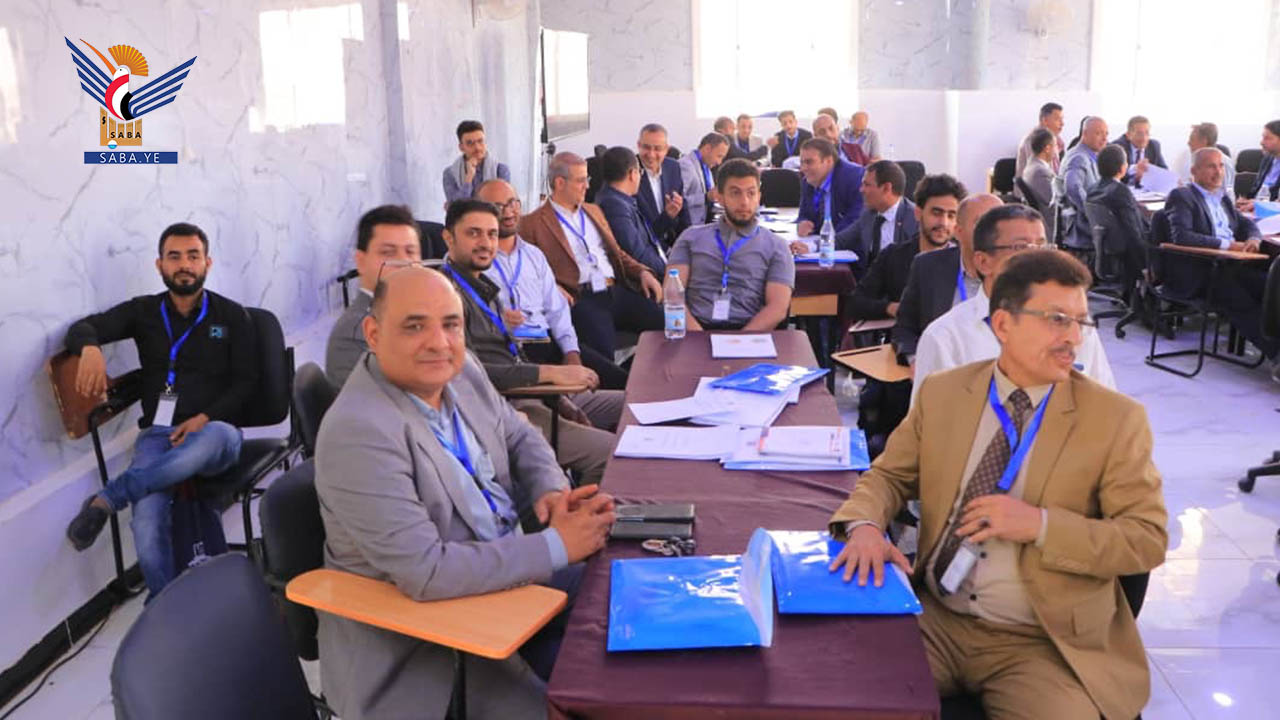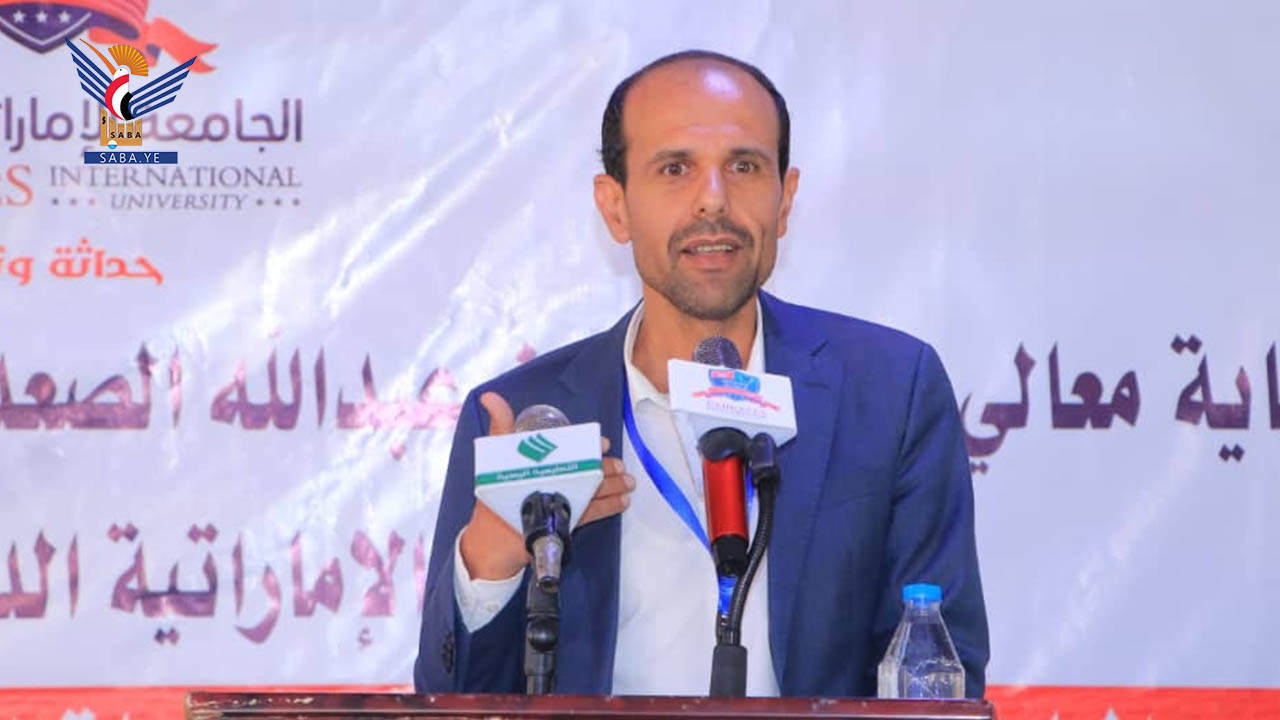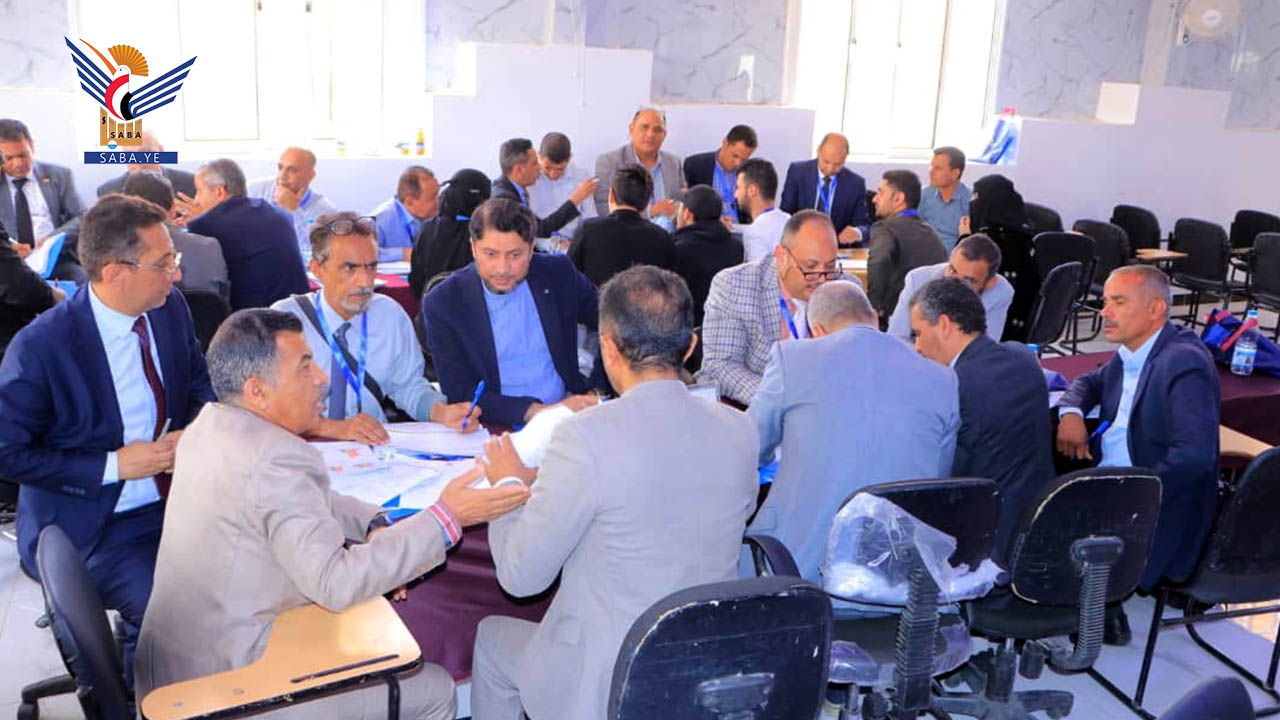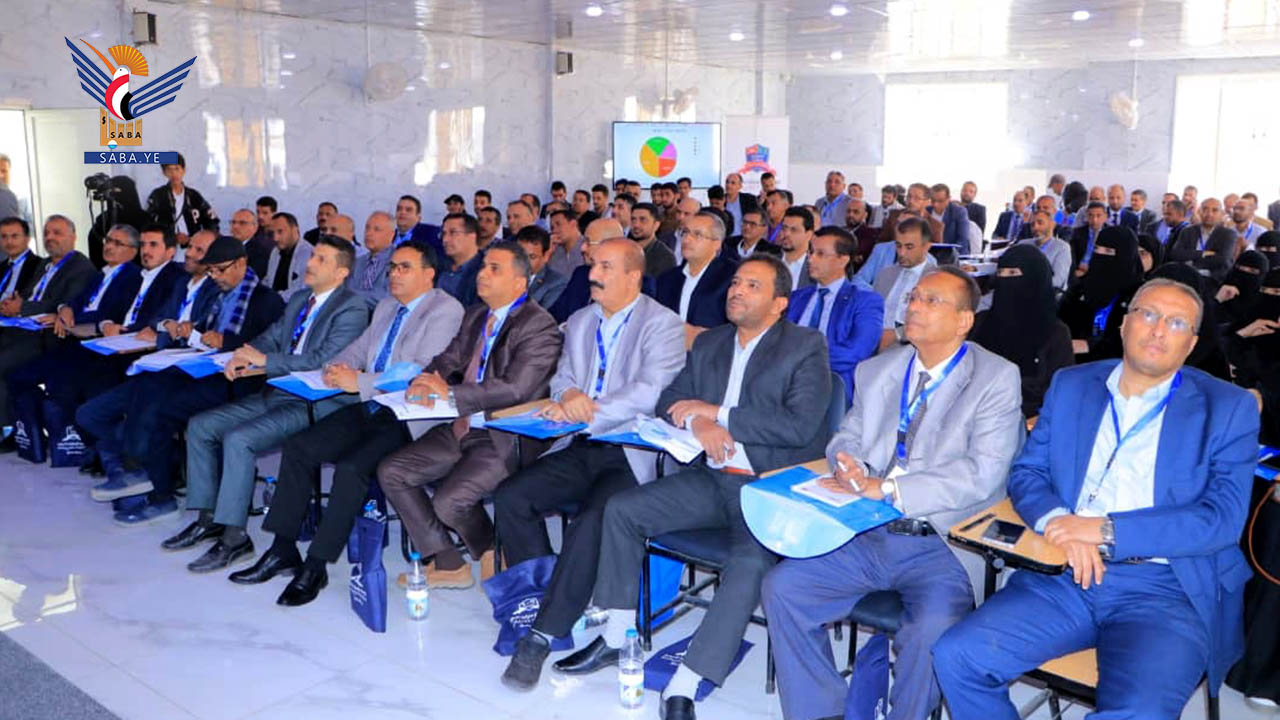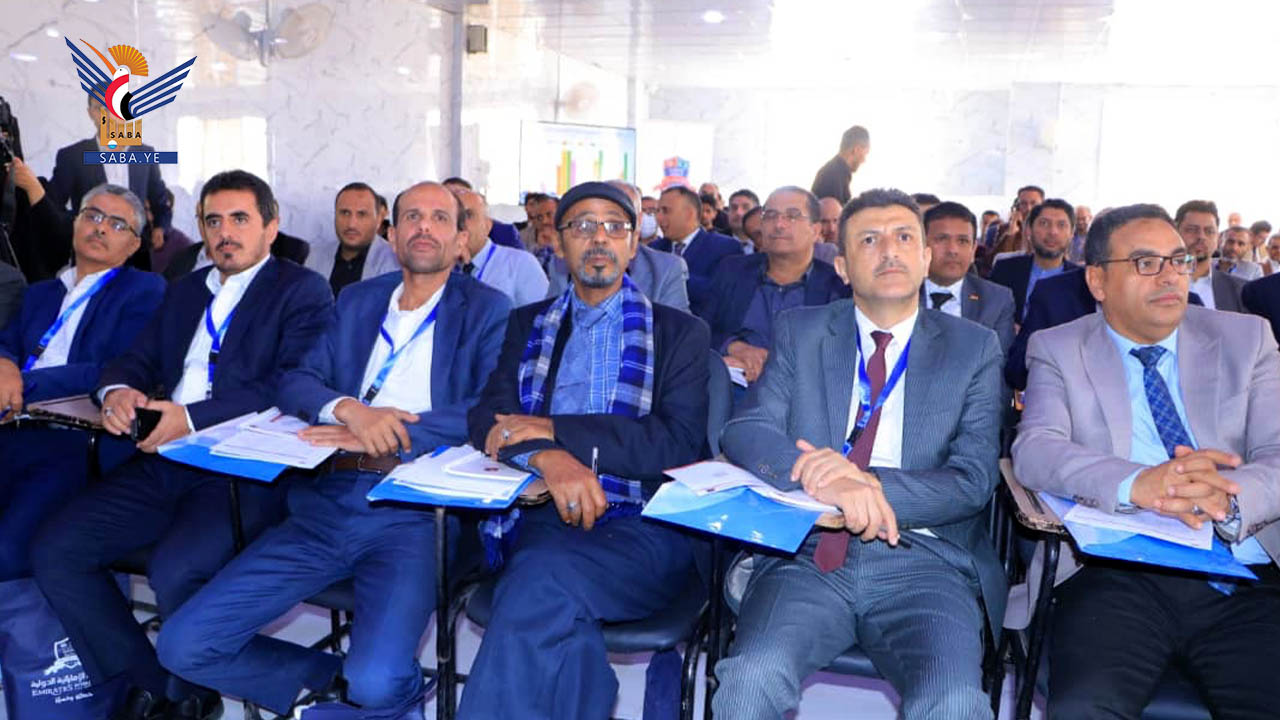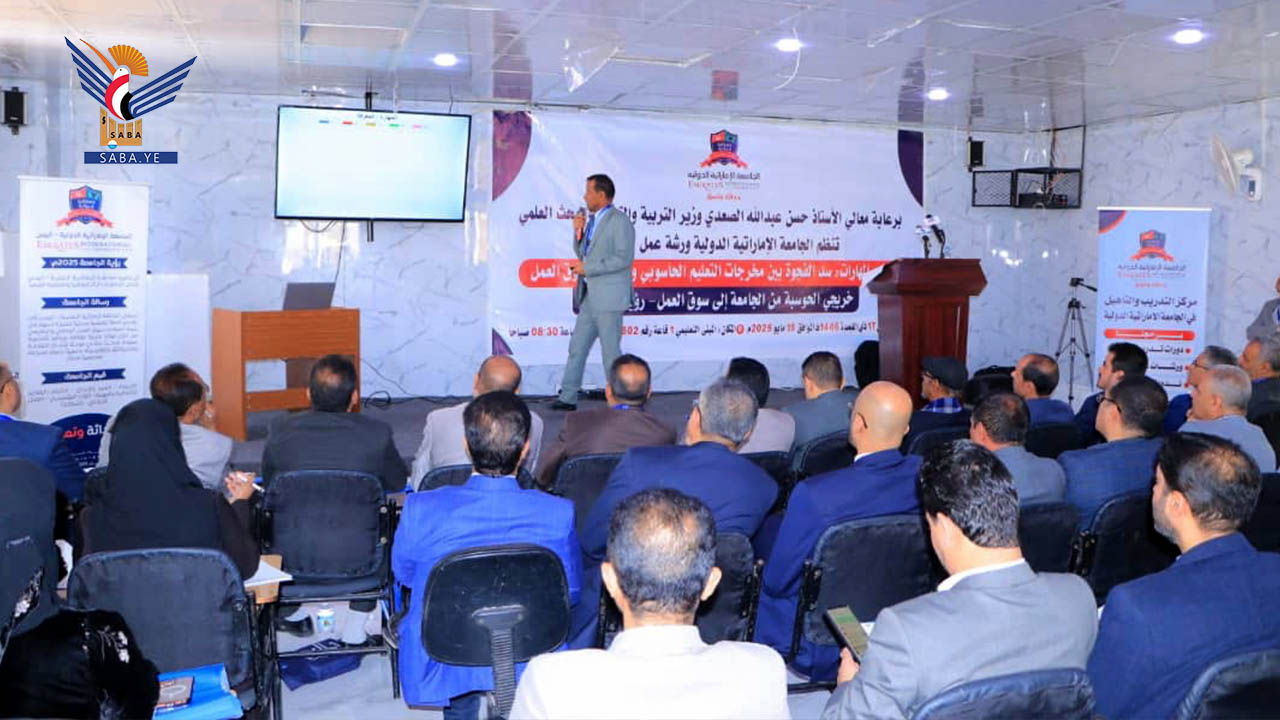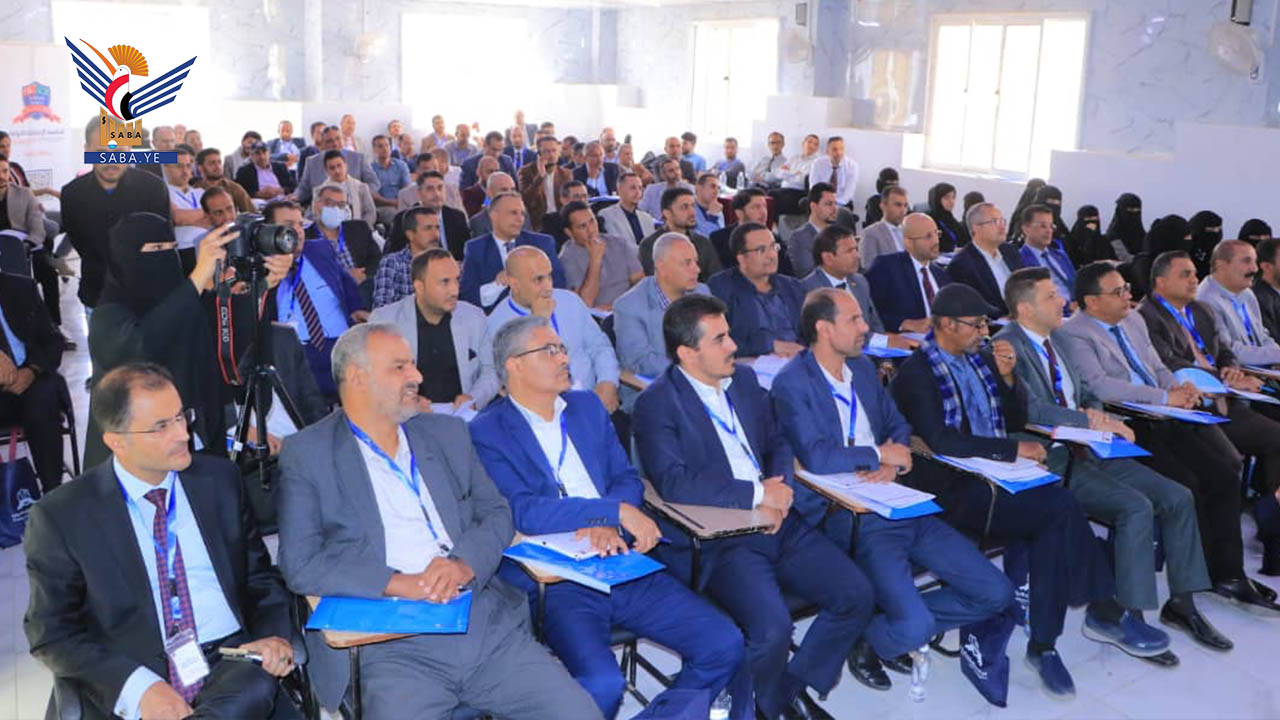
Sana’a - Saba:
A workshop titled "Bridging the Skills Gap: Aligning Computer Education Outputs with Labor Market Demands – From University to Employment, Vision and Application" was held today in Sana’a, organized by the Emirates International University.
The workshop brought together a selection of academics and deans of engineering and computer science faculties from various universities, representatives from the Ministries of Education and Communications, relevant authorities, employers, and graduates. It aimed to diagnose the gaps between academic outputs in computer-related disciplines and labor market requirements, assess the alignment of national academic standards, curricula, teaching methods with current and future market needs, and develop practical solutions and a roadmap to bridge these gaps.
During the workshop, Deputy Minister of Education and Scientific Research Dr. Hatem Al-Duais praised the university’s initiative in organizing the event and involving stakeholders, education experts, and IT professionals to discuss the causes and effects of the gap between computer education outputs and labor market demands. He emphasized the importance of producing actionable, measurable solutions to bridge this gap and achieve comprehensive developmental progress.
Dr. Al-Duais highlighted the university’s focus on quality programs and strategic planning in all its academic and educational activities, expressing the ministry’s readiness to collaborate with universities to address the gap in engineering, computer science, medical, and technical fields. He called for cooperation in aligning education outputs with labor market needs and stressed the importance of collective efforts to implement the workshop’s recommendations effectively.
For his part, Dr. Ahmed Al-Hubub, Chairman of the Academic Accreditation and Quality Assurance Council for Higher Education, emphasized the workshop’s role in evaluating the compatibility of higher education outputs with labor market demands. He noted that academic programs can only be effective after studying labor market needs, affirming that universities’ adherence to "NARS" (National Academic Reference Standards) documents and their enhancement is a key solution to bridging the gap.
Dr. Nasser Al-Mofari, President of the Emirates International University, explained that the workshop served as an interactive platform to highlight the challenges graduates face when transitioning from academia to the workforce. The event focused on developing educational programs that keep pace with changes and meet societal and labor market needs. He added that the workshop sought to identify key gaps between academic and practical skills, analyze employment challenges from the perspectives of graduates and employers, and propose actionable solutions.
National expert Dr. Sharaf Al-Humdi presented the workshop’s objectives, survey results from beneficiaries, and the importance of sustainable partnerships between education and the labor market. Meanwhile, international quality expert Dr. Mohammed Al-Sharjabi analyzed the causes, context, and effects of knowledge, skill, and value gaps among graduates, proposing solutions through knowledge-based economy drivers, institutional performance governance, IT infrastructure, and education innovation.
Engineer Mishal Thabit, representing the private sector and employers, discussed current and future labor market trends in computer-related fields and the skills needed to enhance graduates’ capabilities.
Participants were divided into groups to examine experiences from graduates’ perspectives, analyze and evaluate gaps, assess the availability of current and future knowledge and skills, review gaps in "NARS" standards, and explore sustainable education-labor market partnerships. The workshop concluded with practical solutions and a roadmap to bridge the gap.
A workshop titled "Bridging the Skills Gap: Aligning Computer Education Outputs with Labor Market Demands – From University to Employment, Vision and Application" was held today in Sana’a, organized by the Emirates International University.
The workshop brought together a selection of academics and deans of engineering and computer science faculties from various universities, representatives from the Ministries of Education and Communications, relevant authorities, employers, and graduates. It aimed to diagnose the gaps between academic outputs in computer-related disciplines and labor market requirements, assess the alignment of national academic standards, curricula, teaching methods with current and future market needs, and develop practical solutions and a roadmap to bridge these gaps.
During the workshop, Deputy Minister of Education and Scientific Research Dr. Hatem Al-Duais praised the university’s initiative in organizing the event and involving stakeholders, education experts, and IT professionals to discuss the causes and effects of the gap between computer education outputs and labor market demands. He emphasized the importance of producing actionable, measurable solutions to bridge this gap and achieve comprehensive developmental progress.
Dr. Al-Duais highlighted the university’s focus on quality programs and strategic planning in all its academic and educational activities, expressing the ministry’s readiness to collaborate with universities to address the gap in engineering, computer science, medical, and technical fields. He called for cooperation in aligning education outputs with labor market needs and stressed the importance of collective efforts to implement the workshop’s recommendations effectively.
For his part, Dr. Ahmed Al-Hubub, Chairman of the Academic Accreditation and Quality Assurance Council for Higher Education, emphasized the workshop’s role in evaluating the compatibility of higher education outputs with labor market demands. He noted that academic programs can only be effective after studying labor market needs, affirming that universities’ adherence to "NARS" (National Academic Reference Standards) documents and their enhancement is a key solution to bridging the gap.
Dr. Nasser Al-Mofari, President of the Emirates International University, explained that the workshop served as an interactive platform to highlight the challenges graduates face when transitioning from academia to the workforce. The event focused on developing educational programs that keep pace with changes and meet societal and labor market needs. He added that the workshop sought to identify key gaps between academic and practical skills, analyze employment challenges from the perspectives of graduates and employers, and propose actionable solutions.
National expert Dr. Sharaf Al-Humdi presented the workshop’s objectives, survey results from beneficiaries, and the importance of sustainable partnerships between education and the labor market. Meanwhile, international quality expert Dr. Mohammed Al-Sharjabi analyzed the causes, context, and effects of knowledge, skill, and value gaps among graduates, proposing solutions through knowledge-based economy drivers, institutional performance governance, IT infrastructure, and education innovation.
Engineer Mishal Thabit, representing the private sector and employers, discussed current and future labor market trends in computer-related fields and the skills needed to enhance graduates’ capabilities.
Participants were divided into groups to examine experiences from graduates’ perspectives, analyze and evaluate gaps, assess the availability of current and future knowledge and skills, review gaps in "NARS" standards, and explore sustainable education-labor market partnerships. The workshop concluded with practical solutions and a roadmap to bridge the gap.
